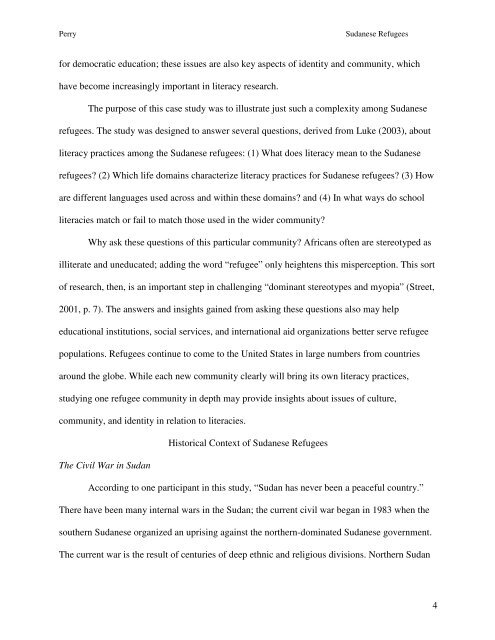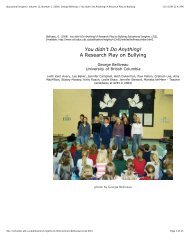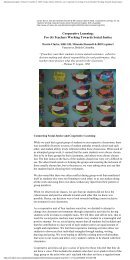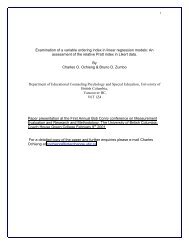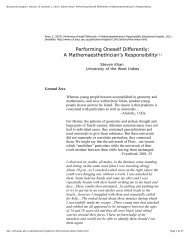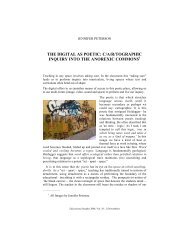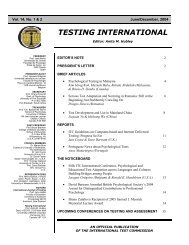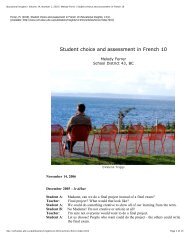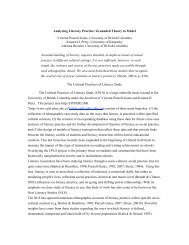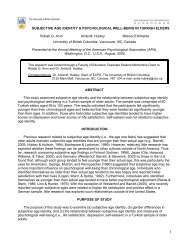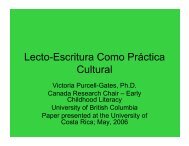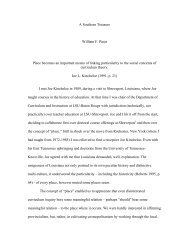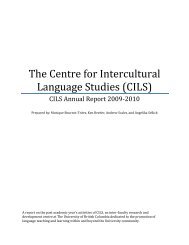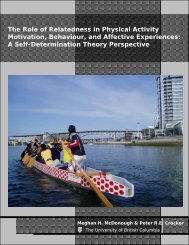Sharing Stories, Linking Lives: Literacy Practices Among ... - CPLS
Sharing Stories, Linking Lives: Literacy Practices Among ... - CPLS
Sharing Stories, Linking Lives: Literacy Practices Among ... - CPLS
Create successful ePaper yourself
Turn your PDF publications into a flip-book with our unique Google optimized e-Paper software.
Perry Sudanese Refugees<br />
for democratic education; these issues are also key aspects of identity and community, which<br />
have become increasingly important in literacy research.<br />
The purpose of this case study was to illustrate just such a complexity among Sudanese<br />
refugees. The study was designed to answer several questions, derived from Luke (2003), about<br />
literacy practices among the Sudanese refugees: (1) What does literacy mean to the Sudanese<br />
refugees? (2) Which life domains characterize literacy practices for Sudanese refugees? (3) How<br />
are different languages used across and within these domains? and (4) In what ways do school<br />
literacies match or fail to match those used in the wider community?<br />
Why ask these questions of this particular community? Africans often are stereotyped as<br />
illiterate and uneducated; adding the word “refugee” only heightens this misperception. This sort<br />
of research, then, is an important step in challenging “dominant stereotypes and myopia” (Street,<br />
2001, p. 7). The answers and insights gained from asking these questions also may help<br />
educational institutions, social services, and international aid organizations better serve refugee<br />
populations. Refugees continue to come to the United States in large numbers from countries<br />
around the globe. While each new community clearly will bring its own literacy practices,<br />
studying one refugee community in depth may provide insights about issues of culture,<br />
community, and identity in relation to literacies.<br />
The Civil War in Sudan<br />
Historical Context of Sudanese Refugees<br />
According to one participant in this study, “Sudan has never been a peaceful country.”<br />
There have been many internal wars in the Sudan; the current civil war began in 1983 when the<br />
southern Sudanese organized an uprising against the northern-dominated Sudanese government.<br />
The current war is the result of centuries of deep ethnic and religious divisions. Northern Sudan<br />
4


